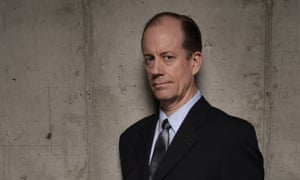Edward Snowden has called for a complete overhaul of US whistleblower protections after a new source from deep inside the Pentagon came forward with a startling account of how the system became a “trap” for those seeking to expose wrongdoing.
The account of John Crane, a former senior Pentagon investigator, appears to undermine Barack Obama, Hillary Clinton and other major establishment figures who argue that there were established routes for Snowden other than leaking to the media.
Crane, a longtime assistant inspector general at the Pentagon, has accused his old office of retaliating against a major surveillance whistleblower, Thomas Drake, in an episode that helps explain Snowden’s 2013 National Security Agency disclosures. Not only did Pentagon officials provide Drake’s name to criminal investigators, Crane told the Guardian, they destroyed documents relevant to his defence.
Snowden, responding to Crane’s revelations, said he had tried to raise his concerns with colleagues, supervisors and lawyers and been told by all of them: “You’re playing with fire.”
He told the Guardian: “We need iron-clad, enforceable protections for whistleblowers, and we need a public record of success stories. Protect the people who go to members of Congress with oversight roles, and if their efforts lead to a positive change in policy – recognize them for their efforts. There are no incentives for people to stand up against an agency on the wrong side of the law today, and that’s got to change.”
Snowden continued: “The sad reality of today’s policies is that going to the inspector general with evidence of truly serious wrongdoing is often a mistake. Going to the press involves serious risks, but at least you’ve got a chance.”
Financially ruined
Thomas Drake’s legal ordeal ruined him financially and ended in 2011 with all serious accusations against him dropped. His case served as a prologue to Snowden’s. Now Crane’s account has led to a new investigation at the US justice department into whistleblower retaliation at the Pentagon that may serve as an epilogue – one Crane hopes will make the Pentagon a safe place for insiders to expose wrongdoing and illegality.
“If we have situations where we have whistleblowers investigated because they’re whistleblowers to the inspector general’s office, that will simply shut down the whole whistleblower system,” Crane told the Guardian.
Crane, who has not previously given interviews, has told his explosive story in a new book, Bravehearts: Whistle Blowing In The Age of Snowden by Mark Hertsgaard, from which the Guardian is running extracts. The Guardian has partnered with Der Spiegel and Newsweek Japan on Crane’s story.

“When someone becomes a whistleblower, they’re making a serious, conscious decision,” Crane said.
“They’re making a decision that can change their lives, change their futures, impact family life, too. There needs to be this certain unbreakable trust. Confidentiality is that trust and that can’t ever be violated.”
Snowden cited Drake’s case as a reason for his lack of faith in the government’s official whistleblower channels.
“When I was at NSA, everybody knew that for anything more serious than workplace harassment, going through the official process was a career-ender at best. It’s part of the culture,” Snowden told the Guardian.
“If your boss in the mailroom lies on his timesheets, the IG might look into it. But if you’re Thomas Drake, and you find out the president of the United States ordered the warrantless wiretapping of everyone in the country, what’s the IG going to do? They’re going to flush it, and you with it.”
While Drake’s case is well known in US national security circles, its internal history is not.
–
Source: Guardian

